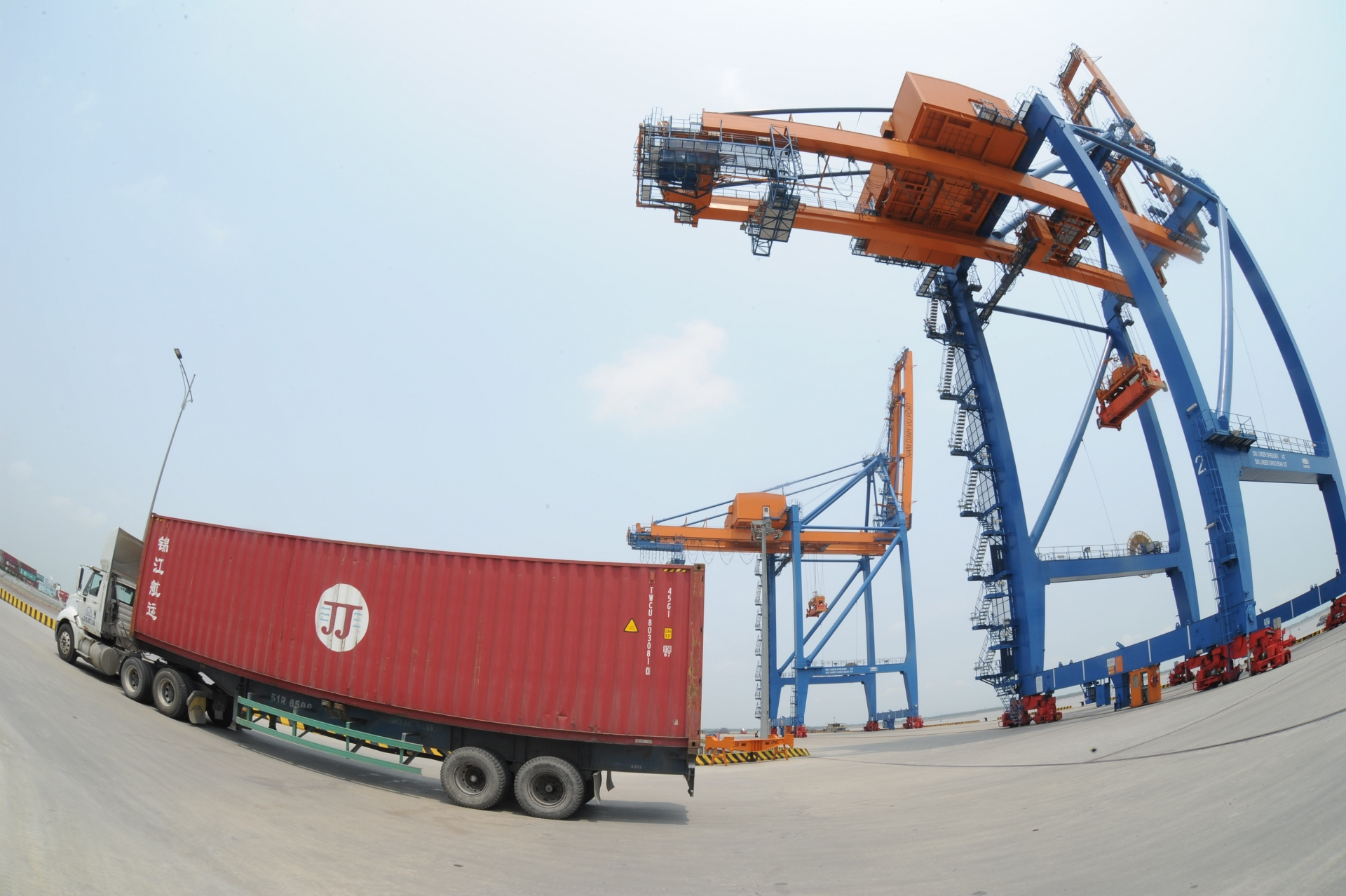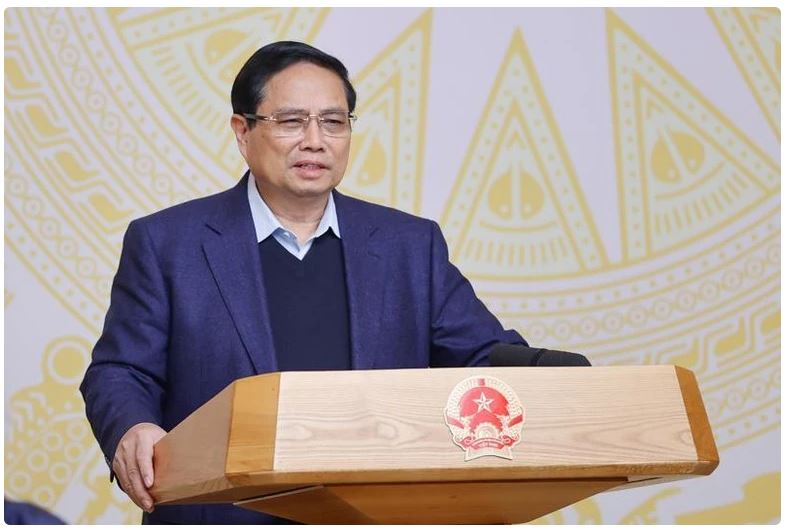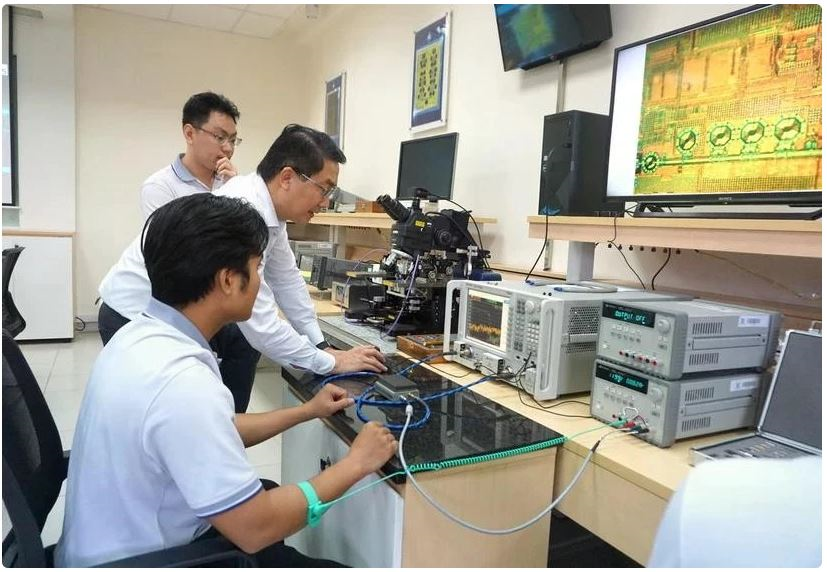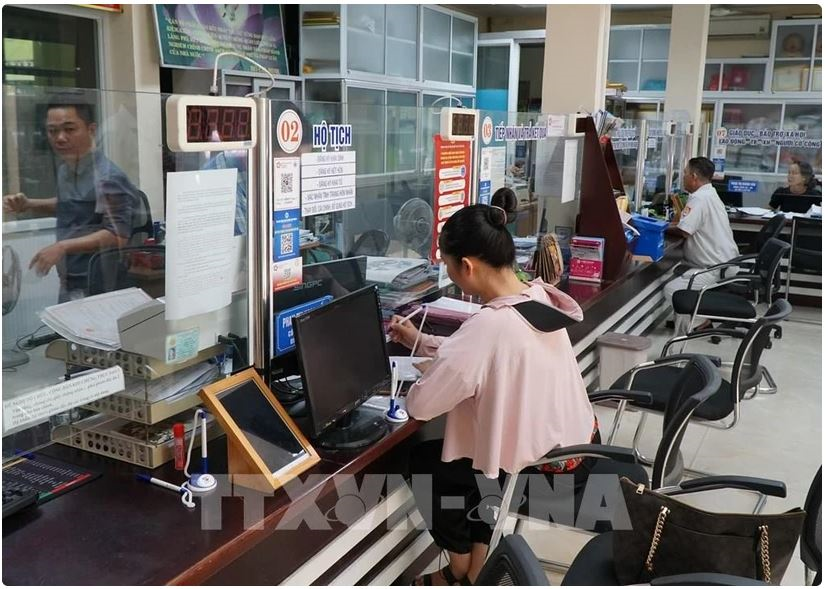-
 A vision of Vietnam as high-income country by 204511/04/2021A vision of a prosperous Vietnam by the middle of the 21st century will offer opportunities to all people, from farmers and workers to academics and entrepreneurs - and leave no one behind.
A vision of Vietnam as high-income country by 204511/04/2021A vision of a prosperous Vietnam by the middle of the 21st century will offer opportunities to all people, from farmers and workers to academics and entrepreneurs - and leave no one behind.
The world’s 37th largest economy
Vietnam had experienced far greater challenges than initially projected for the government’s 2016-2021 tenure, especially the Covid-19 pandemic that has hit countries around the world and has devastated the world economy. Inheriting great achievements and valuable experiences in direction and administration from previous tenures and adhering to the resolutions of the party and the National Assembly, the government had focused on directing all levels to implement the set targets in a drastic, synchronous and effective manner.
The Vietnamese government had been persistent in its objective of maintaining macroeconomic stability, keeping inflation under control, tightening fiscal discipline, and creating a favorable environment to promote the country’s economic growth.
As a result, the country’s foreign exchange reserves hit a record of nearly US$100 billion, while total import-export turnover saw a 1.7-fold increase, from US$328 billion in 2015 to US$517 billion in 2019 and US$545 billion in 2020, with five consecutive years of trade surplus growth.
The country posted a gross domestic product (GDP) growth of 2.91 percent in 2020, the only country in Southeast Asia to record positive growth during the pandemic. In particular, the 2016-2020 period’s average growth of 5.99 percent is still higher than the average 5.91 percent in the 2011-2015 period, putting Vietnam in the group with the highest economic growth in that region and the world.
Driving towards the group of developed countries
Vietnam was ranked 14th worldwide in population, but only 48th in terms of economic scale at the beginning of the 2016-2021 tenure. However, the country climbed 11 places to become the world’s 37th largest economy. With optimistic prospects for economic growth, Vietnam would become a high-income country by 2045.
In order to improve national competitiveness, the Vietnamese government has cut 63 percent of business conditions and implemented one-stop shop mechanisms. In addition, the government has focused on directing the restructuring of credit institutions and state-owned enterprises, while improving public investment disbursement.
Vietnam was elected overwhelmingly as a non-permanent member of the United Nations Security Council (UNSC) for 2020-2021, getting 192 votes out of the 193 member countries and territories of the UN General Assembly. The country also signed five more free trade agreements during this tenure.
Nguồn: VEN
-
 Vietnam harnesses AI to transform public services27/03/2025The Government is accelerating AI application to reduce the paper workload and improve operation efficacy.
Vietnam harnesses AI to transform public services27/03/2025The Government is accelerating AI application to reduce the paper workload and improve operation efficacy. -
 Government steering committee set up to drive Vietnam’s sci-tech, innovation development18/03/2025It is tasked with studying and proposing the Government and the PM national strategies, policies, and solutions for developing science, technology, innovation and digital transformation. Besides, it is in charge of overseeing the implementation of project No. 06 on developing the application of population data, identification, and e-authentication data, as well as administrative reform efforts.
Government steering committee set up to drive Vietnam’s sci-tech, innovation development18/03/2025It is tasked with studying and proposing the Government and the PM national strategies, policies, and solutions for developing science, technology, innovation and digital transformation. Besides, it is in charge of overseeing the implementation of project No. 06 on developing the application of population data, identification, and e-authentication data, as well as administrative reform efforts. -
 Innovation – breakthrough path for Vietnam’s development: experts10/03/2025Experts in Singapore believe that innovation represents a breakthrough path for Vietnam, which is advancing to the new era - that of the nation's rise.
Innovation – breakthrough path for Vietnam’s development: experts10/03/2025Experts in Singapore believe that innovation represents a breakthrough path for Vietnam, which is advancing to the new era - that of the nation's rise. -
 Decisively cutting administrative procedures to facilitate businesses’ operations06/03/2025During a recent working session with representatives of the Party Central Committee’s Commission for Policies and Strategies, Party General Secretary To Lam urged greater efforts to position Vietnam's investment environment among the top three in ASEAN within the next two to three years.
Decisively cutting administrative procedures to facilitate businesses’ operations06/03/2025During a recent working session with representatives of the Party Central Committee’s Commission for Policies and Strategies, Party General Secretary To Lam urged greater efforts to position Vietnam's investment environment among the top three in ASEAN within the next two to three years. -
 Vietnam urged to seize digital transformation opportunities21/02/2025Experts highlighted a young population, the Government's support, and a thriving startup ecosystem are driving the country’s innovation.
Vietnam urged to seize digital transformation opportunities21/02/2025Experts highlighted a young population, the Government's support, and a thriving startup ecosystem are driving the country’s innovation.


